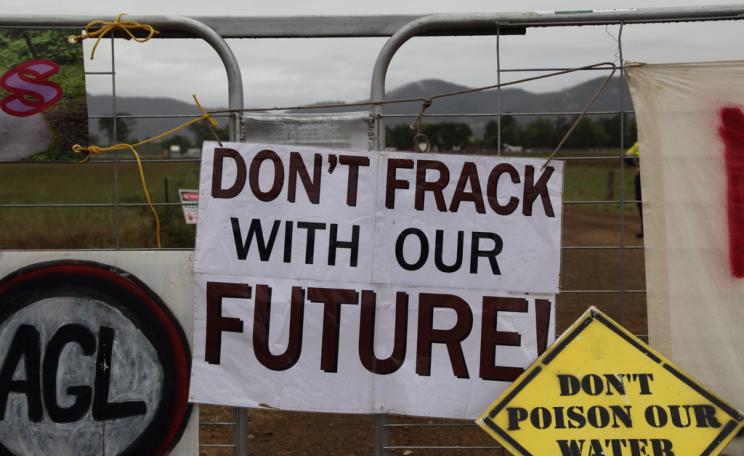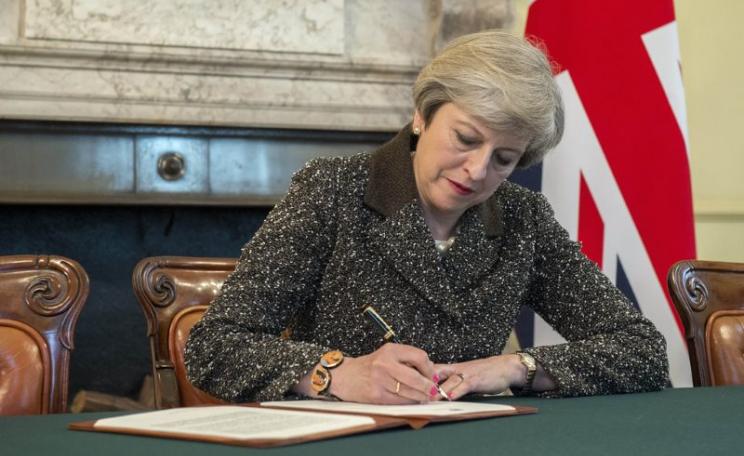The United Kingdom does not enjoy fundamental laws rooted in the sovereignty of the people. We cannot extend or strengthen our basic rights as we do not have such rights.
Magna Carta, the 'great charter' was sealed on 15 June, 799 years ago.
As preparations begin for the 800th anniversary the people of England need to claim their rights and liberties not be subject to a self-congratulatory celebration.
After Edward Snowden revealed that the UK's security agencies are developing bulk surveillance of the metadata that maps our lives in intimate detail, a surprising number of people said Britain needs a 'Fourth Amendment'. This would protect our privacy from "unreasonable searches".
When The Guardian was threatened by the government for publishing the Snowden revelations and had its offending hard drives pulverized, there were demands for a British 'First Amendment' to entrench freedom of the press.
We cannot amend a non-existent Constitution
Now that the British state is holding secret trials and introducing "Closed Material Procedures" (see Jo Shaw and Yvonne Ridley), there is talk of the need for a Sixth Amendment: that anyone accused "shall enjoy the right ... to be informed of the nature and cause of the accusation", or even the Fifth, that no one should be "deprived of life, liberty, or property, without due process of law."
But there is a screamingly obvious problem with all such demands. We do not have a Constitution to amend. The United Kingdom does not enjoy fundamental laws rooted in the sovereignty of the people.
We cannot extend or strengthen our basic rights as we do not have such rights, they remain gifted (and taken away) by a sleepy, if not intoxicated, Parliament.
We do have a constitution, of course. Peter Hennessy, now a cross-bench peer, once took his students to meet the then Sir, now Lord, Robin Butler when he was Cabinet Secretary and Head of the Civil Service.
'We make it up as we go along'
One of them innocently asked what is the British Constitution. Butler answered, "something we make up as we go along".
Who is this "we" that makes it up? It is certainly not 'We, the people'. When Sir Robin was speaking, he was part of the last remnants of the old Establishment. Now the British Constitution is something GCHQ makes up, as it goes along.
The issue has added poignancy 799 years after the Magna Carta was signed by at Runnymede. Those Fifth and Sixth Amendments establishing the rule of law in America trace their antecedents back to the Magna Carta's assertion that a freemen may not be condemned "except by lawful judgment of his peers".
And it is Americans who celebrate this. If you visit Runnymede, a pleasant meadow by the Thames, between the M3 and M4 just west of London's Heathrow airport, you learn that it was thanks to an American that the site was donated to the National Trust, while the monument to the signing of Magna Carta was erected by the American Bar Association in 1957.
The United Kingdom does not enjoy fundamental laws rooted in the sovereignty of the people. We cannot extend or strengthen our basic rights as we do not have such rights.
Indeed the only English contribution to memorialising the supposed founding moment of Anglo-Saxon civilisation is the Magna Carta Tea House.
A dangerous precedent
There are good reasons for official embarrassment. We have a British-wide ruling elite but the Magna Carta is a very English document, defining relations with the Welsh, Scots, and Jews.
Conceded under duress, it held a monarch to account - not an example to be encouraged. In so doing it wrote down on parchment how we are to be ruled, rather than leaving things to the informal instincts of generations of Robin Butlers.
It exposed the influence of the Barons, thus permitting the awkward question of who are their successors today (answer: not part of Michael Gove's curriculum).
Though now rarely acknowledged, the Charter was dubbed the Magna or Great Charter for a specific reason. The use of 'Great' was not a formless puff, as in today's 'Great Britain'. It linked the document to its minor companion, the Charter of the Forests.
This lesser charter set out the rights of regular people to access and use of the public commons. It even, it has been argued, imposed an ecological commitment to their maintenance.
Even today, Magna Carta is subversive of established power
Finally, the Greater Charter enshrined claims to due process and the right to trial by jury - pillars of the rule of law that today are openly regarded as impediments to national security; and always regarded as suspect by officialdom.
Thus any authentic celebration of Magna Carta would be a sober, serious challenge to the status quo, unlike the celebratory website proclaiming "The Magna Carta has been the most valuable export of Great Britain to the rest of the world".
For all its eulogies it cannot bring itself to reproduce the actual Magna Carta itself, let alone the Charter of the Forests.
This is not to make an anachronistic claim that the Magna Carta was 'progressive'. It was a feudal deal. It is the myth that matters: an inspiration to challenge arbitrary, despotic power; a seed for a democratic constitution; a right to be ruled by law.
And even, thanks to its companion Charter, a claim that land be held in common not enclosed for profit.
Democracy as an export product - far too valuable for home consumption
To snuff out all such radicalism, the official celebrations of its 800 years will be funded 12 months hence by £1 million from chancellor George Osborne and we will be palmed off with an assortment of Magna Bollocks, to express gratitude to Britain's ruling order gifting liberty to the globe.
That is how Margaret Thatcher saw it after 1989. Unable to prevent the unification of Germany she planned to use a Paris Summit on European security in November 1990 to launch a Magna Carta for Eastern Europe.
I attended the press conference, in the ballroom of the British Embassy and asked her, "Prime Minister, why, when you called upon this Summit to entrench rights across Europe, do you not agree with Charter 88 that we should have entrenched rights in the United Kingdom?"
She replied, "We are in this Summit to get rights way across the European Divide ... to call for the Community to extend democracy to other countries ... ".
Within three days, British democracy such as it was, forced Thatcher to resign. Let's hope that the curse of the Magna Carta brings down our present bunch of manipulative populists. Eight hundred years of rule by Barons is enough. It is the peoples' turn.
Give true democracy a chance?
We do not just need a Magna Carta for the World Wide Web as Tim Berners-Lee has called for, we need a democratic Constitution: to govern Parliament now that it has been corrupted and suborned, to define our relations with Europe and secure our claims to privacy, liberty and, in a digital age, our metadata.
PS: And we had this from the Prime Minister in yesterday's Mail on Sunday - a striking example of the Magna Bollocks to which we will be endlessly subjected over the coming year:
"The remaining copies of that charter may have faded, but its principles shine as brightly as ever, and they paved the way for the democracy, the equality, the respect and the laws that make Britain.
"So I want to use this upcoming 800th anniversary as an opportunity for every child to learn about the Magna Carta, for towns to commemorate it, for events to celebrate it.
I'm even holding my own 'one year to go' reception at Downing Street tomorrow."
Anthony Barnett (@AnthonyBarnett) is the founder of openDemocracy.
Related Articles
- Occupy Runnymede: Six reasons why the British Establishment hates the Magna Carta
- Britain is not just ‘undergoing privatisation', this is a modern enclosure movement
- Time for Magna Carta 2.0
This article was originally published by Open Democracy under a Creative Commons Attribution-Non Commercial 3.0 licence.





